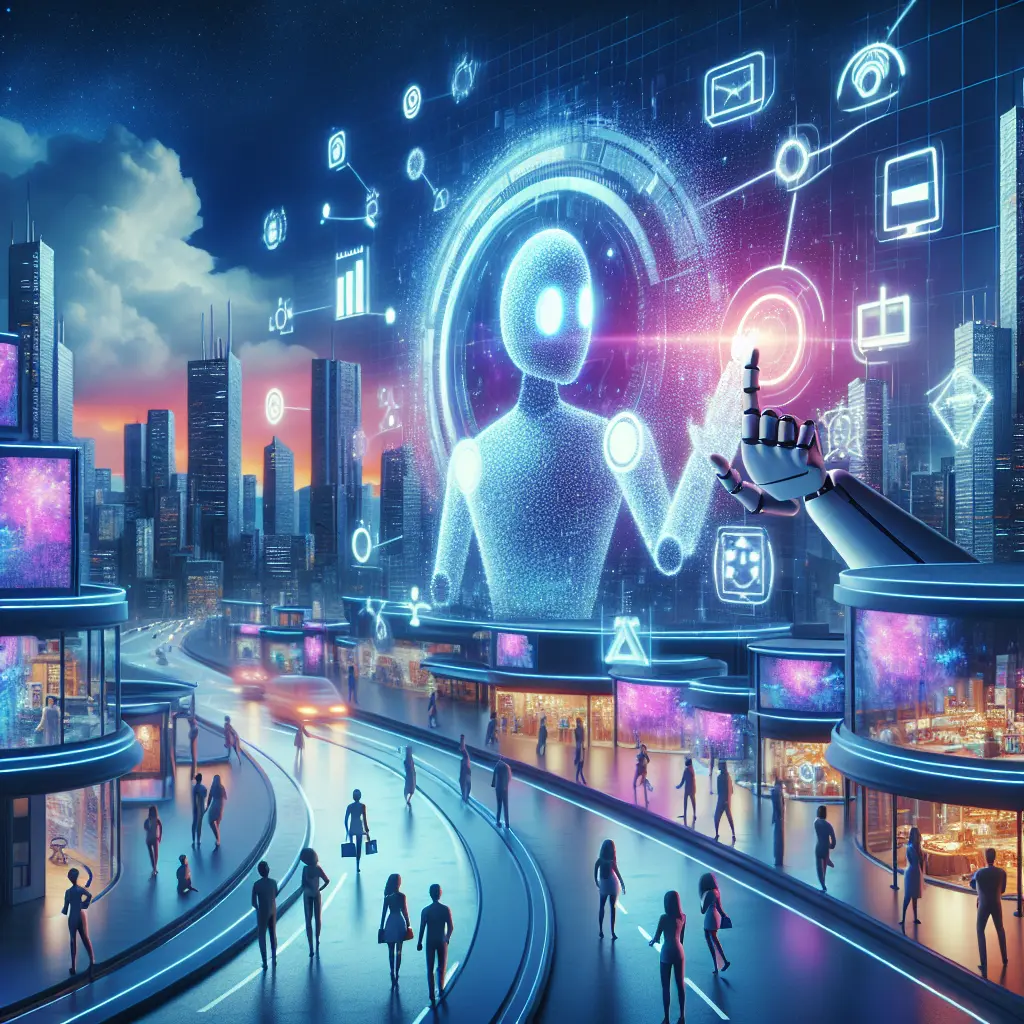
The intersection of artificial intelligence (AI) and advertising is reshaping how brands communicate with consumers. From AI-driven advertising strategies to machine learning advertising, the landscape of promotional content is undergoing a significant transformation. As we delve into the future of advertising, it's evident that AI technology in ads is not just a passing trend but a cornerstone of modern marketing.
The Role of AI in Advertising
AI in advertising is revolutionizing the sector by enabling more personalized, efficient, and effective campaigns. AI algorithms in advertising analyze vast amounts of data to predict consumer behavior and preferences, leading to highly targeted and relevant ads. This capability is enhancing ad personalization, a key factor in the success of digital campaigns. Personalized advertising AI ensures that the right message reaches the right audience at the right time, significantly boosting engagement and conversion rates.
AI Marketing Trends and Digital Transformation
AI and digital marketing are becoming increasingly intertwined. Current AI marketing trends point towards more automated and intelligent systems that can manage ad campaigns from creation to execution. AI tools for marketing are now capable of optimizing ads for better performance, ensuring that marketing budgets are spent in the most effective manner possible.
For instance, platforms like X have recently made headlines by offering an ad-free experience in their Premium+ subscription tier. This move highlights the growing consumer demand for uninterrupted services, pushing advertisers to find new, less intrusive ways of reaching audiences. The use of AI for better ad performance is crucial in this context, as it helps brands maintain visibility without disrupting the user experience.
Machine Learning: The Backbone of Modern Advertising
Machine learning advertising is at the forefront of this evolution. By learning from past ad performance data, these systems can make real-time adjustments to campaigns, enhancing the effectiveness of advertisements across various channels. AI for targeted ads is particularly beneficial in digital environments where user interactions provide immediate feedback and data for optimization.
Recent Developments in AI-Driven Advertising Strategies
Several recent events highlight the dynamic nature of AI-driven advertising strategies. For example, a political group has chosen a unique moment to air a commercial urging President Biden to drop out of the race, selecting the timing during his favorite TV show. This strategic placement, possibly informed by AI analysis of viewer demographics and preferences, underscores how AI technology can be used to maximize the impact of advertising messages.
Similarly, controversies such as the ban of a Virgin Atlantic Airways ad in the U.K., or Apple pulling an ad due to criticism over its depiction of Thailand, demonstrate the challenges facing advertisers in a global market. These instances reveal the need for AI systems that can not only target effectively but also navigate cultural sensitivities and regulatory standards.
The Future of AI in Ad Optimization
Looking ahead, AI in ad optimization is poised to become even more sophisticated. With advancements in AI and machine learning technologies, we can expect future systems to not only refine how ads are targeted and displayed but also enhance creative elements of advertising by predicting what content will resonate with audiences.
Moreover, with tools like the 'Friend' AI pendant, which interacts with users by sending texts about their lives, there's potential for integrating AI even more deeply into personal and social contexts. These innovations could redefine engagement by making brand interactions feel more like communicating with a friend rather than being subjected to traditional advertising.
Challenges and Considerations
Despite these advancements, the integration of AI in advertising does not come without challenges. Issues such as privacy concerns, data security, and ethical considerations around AI decision-making must be addressed. Advertisers and tech companies must work together to establish guidelines that protect consumer interests while fostering innovation.
Concluding Thoughts
As we continue to navigate the complex interplay between technology and consumer behavior, it's clear that AI has a pivotal role in shaping the future of advertising. By harnessing AI-driven advertising strategies and machine learning advertising, brands can create more meaningful and effective connections with their audiences.
AI's ability to deliver personalized, optimized, and strategically sound advertising experiences not only enhances brand performance but also enriches the consumer journey. As we look forward to further innovations in this field, it remains crucial for advertisers to stay informed and adaptable to the ever-evolving digital landscape.
Thank you for joining me on this exploration of how AI is transforming advertising. Stay tuned for more updates and insights into how technology continues to redefine our world.
Yours digitally,
Felicia Morris